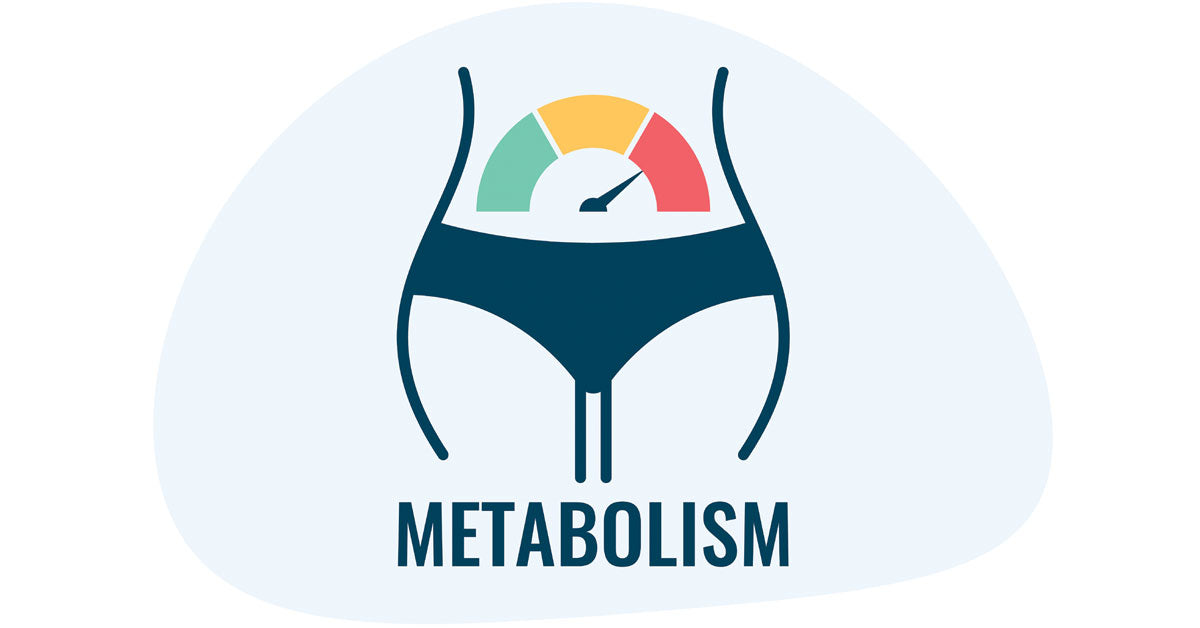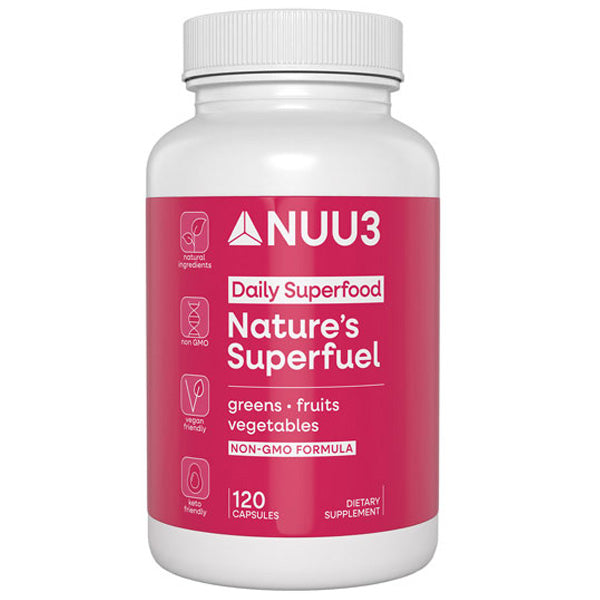A Guide to Recognizing Slow Metabolism Symptoms

Many people go through endless struggles to lose weight. Maybe you’ve tried several diets or taken weight loss supplements and found that while you lose weight initially, as soon as you stop your program, you gain it all back. Many things can cause this, including a slow metabolism. In this post, we’ll look at what your metabolism is and how you can recognize slow metabolism symptoms. We also explore the causes and look at what you can do to speed up your metabolism.
What is Metabolism?
When you eat, your body needs to break down the food, extract nutrients from it, and convert molecules into a form of energy that allows you to function. This process, where your body turns food into a source of energy, is what we call metabolism, and it’s a complex process that involves many chemical reactions.
What are the Types of Metabolism?
There are two different kinds of metabolism and it’s important that you understand the differences between them and how each works. This will also help you better understand the relationship that exists between metabolism and your health.
The two main types of metabolism include anabolism and catabolism[1], so let’s explore each of these individually:
- Catabolism - the initial process of metabolism where matter is broken down into small molecules. During the catabolism process, your body is able to release energy from the foods you eat.
- Anabolism - the “build-up” metabolic process. This process takes small substances in your body and builds them up into molecules that your cells can use.
What does it Mean to Have a Slow Metabolism?
Your metabolism rate defines how quickly certain things happen in your body. If you have a slow metabolism, it means you burn fewer calories during the day. In turn, it also means you’re going to end up storing more calories as fat in your body. While this happens naturally as you age, other things also affect your metabolism. For example, if you’re sedentary most of the day, then this can be another factor.
What is the Metabolic Rate & How it is Measured?
Your metabolic rate essentially tells you how much your body burns naturally every day. Even while your body is at rest, it is still using energy to keep cells working properly but even though you’re technically burning calories even if you’re not active, this rate is usually lower than the number of calories you ingest. We also call this the resting metabolic rate.
When it comes to calculations, you’re generally going to follow formulations to get your basal metabolic rate[2]. This relates to how many calories your body needs in one day to function properly.
Men should use the following formula:
88.362 + (weight x 13.397) + (height x 4.799) - (age x 5.677)
Note that weight should be in kilograms, height in centimeters, and age in years.
Women should use a different formula when calculating their basal metabolic rate:
447.593 + (weight x 9.247) + (height x 3.098) - (age x 4.330)
It’s important to note that this doesn’t tell you how many calories you should eat every day, as there are more calories that you’re going to burn during the day.
What are the Symptoms of Slow Metabolism?
There are a couple of different slow metabolism symptoms and it’s important to take note of them to help you know when there’s a problem. Several symptoms can develop, so let’s take a quick look at them:
- You’ll likely find that you’re gaining weight.
- It is hard for you to lose weight.
- General fatigue without any obvious explanation.
- In addition to fatigue, you may also feel weak.
- Your skin may feel dry, and you may find that your hair is starting to thin.
- You may experience mood-related problems.
- You find it hard to concentrate or pay attention.
Slow Metabolism and Weight Gain: What’s the Connection?
If you have a slow metabolism, you’re likely to find that you gain weight easily. It’s one of the many slow metabolism symptoms that you’ll experience and to understand why this happens, we must look at the role of calories.
When you have a slow metabolism, you burn calories at a slow pace; the calories your body doesn’t burn during the day get stored as fat and this is why one of the slow metabolism symptoms includes weight gain.
How to Treat Slow Metabolism?
The good news is there are ways to speed up your metabolism, so let’s take a closer look at what you can do if you want to experience signs of fast metabolism.
Foods to boost a slow metabolism
High-quality protein, healthy fats, and lots of fiber are important elements when it comes to maintaining a faster metabolism. Some foods, such as those filled with saturated fats, have the opposite effect, slowing down your metabolism.
1. Drink enough water
Hydration is also crucial when it comes to addressing slow metabolism symptoms, so make sure you drink enough water every day. If you’re dehydrated, your metabolism slows down due to the role that water has in moving food throughout your digestive tract.
2. Get enough sleep
Sleep plays a really important role in helping to balance your metabolism. In fact, sleep deficiency has even been linked to problems like obesity and a higher risk of chronic diseases.
3. Reduce stress
Stress causes cortisol to be released in your body, which promotes inflammation and also affects metabolism. Because stress takes such a toll on your health overall, consider supplementing your daily routine with Nuu3 Nature’s Superfuel to provide the nutritional support you need to optimize all aspects of well-being.
4. Metabolism booster supplement
Metabolism booster supplements are something to consider when you’re looking for a way to speed up your metabolism. There are many different products on the market, so do some research to find the best metabolism booster available.
For example, you can boost metabolism with Nuu3 Immune Plus, a multifunctional, top-quality supplement that’s also great for supporting your immune system.
5. Exercise regularly
The less active you are, the more likely you become to experience slow metabolism symptoms. While exercising regularly helps you burn calories faster, you can also optimize your workout by using Nuu3 ACV Gummies, which will make a big difference to your metabolism too.
Frequently Asked Questions
At what age does your metabolism slow?
While it’s true that your metabolism slows down over time, researchers found[3] that the most significant slowing of metabolism occurs once an individual turns 60.
What are the effects of a slow metabolism?
When you have a slow metabolism, you may notice an increase in weight. Slow metabolism symptoms also include low body temperature, fatigue, and issues with your mood.
Why is my metabolic rate different from others?
Many things can affect your metabolic rate. Your body size, your age, how much lean mass you have, and many other things will have an impact on your metabolism.
Can you measure your metabolism?
Yes, it’s possible, and the process starts by calculating your resting metabolic rate. There are certain tests that you can use and one way is to determine oxygen intake when inhaling and carbon dioxide release when you exhale.
Conclusion
If you’ve got a slow metabolism, it could certainly make your weight loss journey harder. Additionally, as you gain more weight, this puts stress on your body, promotes inflammation, and even raises your risk for diabetes, as well as other chronic health conditions. The first step to addressing this problem is to understand slow metabolism symptoms, which will help you decide the best course of action.
References
1] ↑https://byjus.com/biology/metabolism/
2] ↑ https://blog.nasm.org/nutrition/resting-metabolic-rate-how-to-calculate-and-improve-yours#calculating-rmr
3] ↑https://health.osu.edu/wellness/aging/does-metabolism-really-slow-down-with-age












